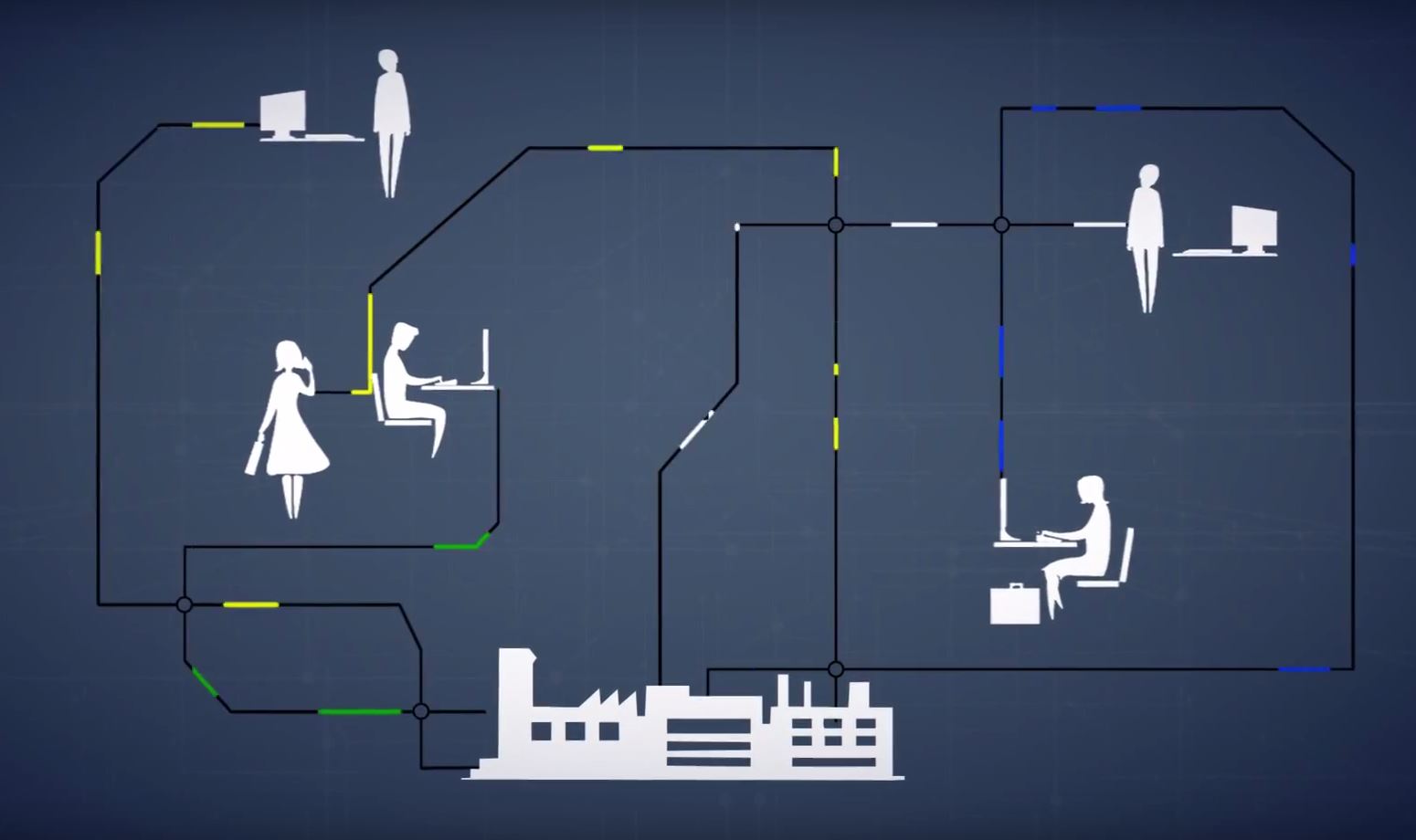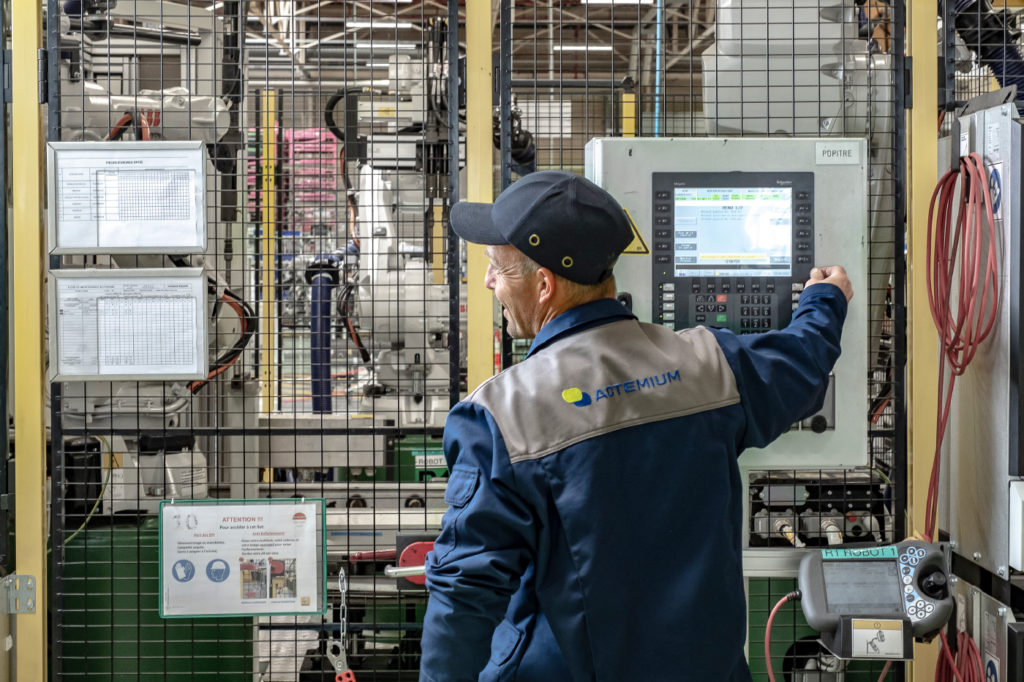MES: a cornerstone of the industry of the future
The industry of the future will be all about ultra-connected factories, information flows, interconnection and … MES: an essential tool to collect and exploit the enormous volume of data produced every day, whose analysis plays such a crucial role in improving performance.
MES (Manufacturing Execution System) is a workshop information system that links ERP and supervision software. “It facilitates communication between two worlds, the world of production management and the world of manufacturing on the ground,” explains Manuel Venchiarutti, Business Manager at Actemium.
This software package collects full manufacturing data in real time so it can be optimised using very precise indicator tracking, from order to shipment of the finished product. “It might be about recovering the production schedule or delivery requests, transmitting information from the field about the state of the facility, the available resources, current shop floor production, possible delays, etc.” adds Manuel Venchiarutti. “By grouping together all the data in real time and in the same place, analysis is simplified, correlations are easily found to establish the reasons for a delay or a decline in quality, for example,” explains Laurens Marijns, MES consultant with Actemium in Belgium.
MES, a comprehensive solution to improve industrial performance
There could be lot of reasons for installing an MES system: regulatory or environmental constraints, energy efficiency, or a change in the company’s production method. “Each MES is different and caters from one client to the next. Some of them will focus on quality, others on production operations scheduling or KPIs,” explains Laurens Marijns. For example, “The automotive industry manufactures on a make-to-order basis with high level of car customization on the production line, whereas industries like petrochemicals nearly always manufacture the same product. They therefore have completely different production tracking needs. In the latter case, they will focus more on limiting discharges and reducing energy consumption to produce the same product, or even if they do vary the production, they will focus on optimizing production so they don’t consume too much,” adds Manuel Venchiarutti.
“For example, at Marie (LDC Group) we have deployed an MES solution at six plants which, among other things, helps improve overall product traceability (from reception to packaging), manufacturing and performance tracking, quality control, and inventory and flow management. The solution we implemented is PRODUCIM®, the software package developed by our Software Publishing department. All the data is centralized in one single system available to everyone. As a result, for one specific batch and “in just one click”, users can obtain the genealogy of all the batches that make up its composition, as well as information about which facilities it was manufactured on, by which operator, possible machine breakdowns, the detailed results of the self-checks, the process parameters, or the finished products,” explains Jean-Michel Blanc, MES Sales Manager at Actemium Saint-Etienne.
The industry of the future: MES, not a new tool but very essential
The general approach and MES’s 11 functionalities have existed for a long time. “At Actemium, we have been doing MES for over 20 years. In those days, it wasn’t yet called MES. Like Molière’s Monsieur Jourdain who had been speaking prose without knowing it, we had been doing MES without knowing it!” jokes Jean-Michel Blanc. The system has however, been enhanced by and evolved as a result of the development of web technologies and networks
The industry of the future, is an industry that is connected, has real-time information wherever people are, whether they are in the factory or even outside. MES is one of the production system’s databases and managing this information is a major issue.
Today, MES is one of the essential components of the industry of the future. “The industry of the future, is an industry that is connected, has real-time information wherever people are, whether they are in the factory or even outside. MES is one of the production system’s databases and managing this information is a major issue,” continues Manuel Venchiarutti. This pool of data has enormous potential and can be used to optimize production through analysis and problem-solving. “For example, we have deployed MES at several Solvay plants, both new plants and plants that are being renovated. At the new plants, MES enables much faster commissioning thanks to instant data availability. At the plants undergoing refurbishment, MES enables very rapid optimization of the manufacturing process and therefore of production, through data analysis, notably by using Six Sigma methodologies. »
MES, not only facilitates communication but also optimisation, traceability, quality control, performance monitoring and maintenance. It is really the cornerstone which enables a factory to transform and converge towards the interconnection of the industry of the future.
How will MES evolve in the near future?
MES also opens up new possibilities, notably regarding mobility. An operator can now move around inside a factory carrying a tablet or smartphone and monitor production directly. Likewise, the data displayed in connected glasses or virtual reality headsets comes from different sources, including MES, for all measures. In the factory of the future, being able to access information whilst on the move will enable even greater responsiveness and ever-closer monitoring.




